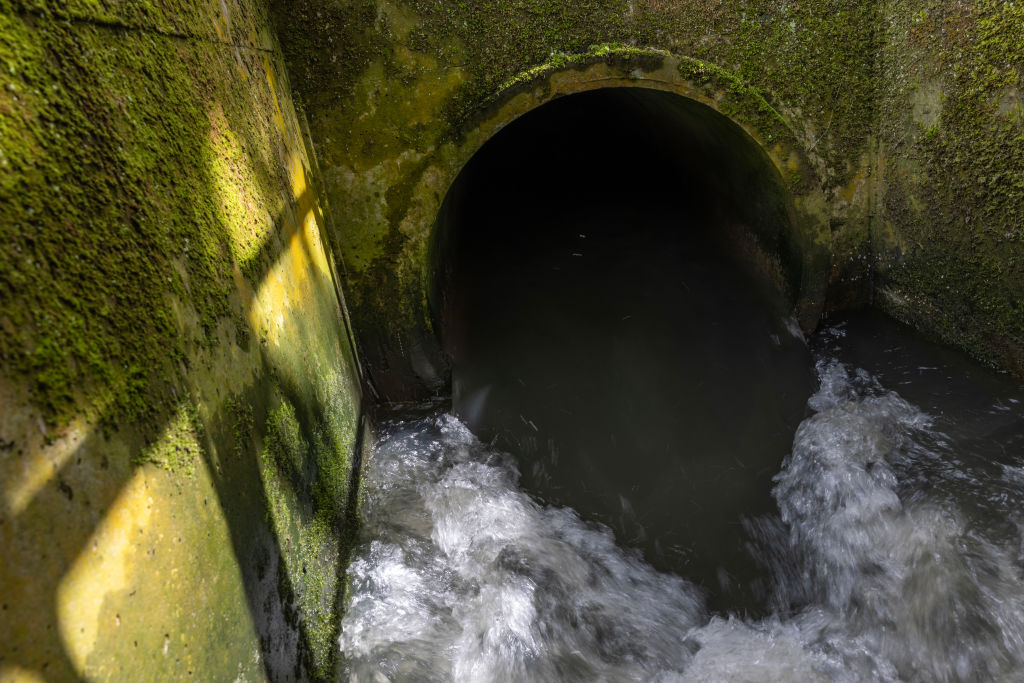Surfers Against Sewage urge government to crack down on raw sewage spills

A leading environmental campaigning group has called on the government and water industry to ensure there is accurate data for raw sewage releases in Britain’s rivers and sea.
Surfers Against Sewage (SAS) has warned today that “without full transparency polluters will find new ways to cover up their wrongdoings and continue to treat our waterways like open sewers.”
Henry Swithinbank, policy and research manager at SAS, told City A.M he didn’t trust the water industry to be honest about the extent of sewage leaks anymore.
“What else are they hiding?” he said.
This follows the latest findings reported by the Marine Conservation Society (MCS) this week, which revealed that less than 10 per cent (686) of emergency overflows in the sewerage network are monitored, of the 7,016 across England last year.
Emergency overflows are meant to be used as a very last resort in the event of a mechanical, technical or physical failure in the network because they release raw, undiluted sewage into the environment.
They are only permitted when there is a mechanical, technical or physical failure in the sewerage network, and are considered a safety measure to prevent flooding and damage across the water system.
However, the charity group published data from a freedom of information request exposing a lack of monitoring and an over-reliance on emergency raw sewage releases.
Alongside the headline figure, it also found that of the 233 emergency overflows that are known to have discharged last year, 60 per cent did so repeatedly.
This meant the true discharge figure could be 10 times higher than reported, if overflows being checked were reflective of the wider national picture.
Yet MCS found that nearly two-thirds of the overflows releasing sewage were doing so repeatedly.
There was also 86 emergency overflows discharging into waters designated to farm shellfish a total of 491 times – putting businesses and people at risk.
Commenting on the data, Swithinbank labelled MCS’s discoveries to be “incredible” but unsurprising.
“We’re not surprised at yet another dire example of a crooked system. Storm overflows should only be used in exceptional circumstances and emergency storm overflows should rarely be used, if ever. Lapse regulation means they’ve been getting away with little more than a slap on the wrist. It shows that we still have an incomplete view of just how huge the sewage scandal is,” he said.
Raw sewage overflows no longer a last resort
Emergency overflows release raw, undiluted sewage into the water and are supposed to be a last resort measure.
This poses a health risk to swimmers and to marine life – as raw sewage contains harmful chemicals, bacteria and viruses, and causes rivers to be polluted with algae.
As it stands, the regulator only currently requires companies to monitor emergency overflows where there are discharges to shellfish waters, although many companies monitor emergency overflows beyond this requirement.
Laura Foster, head of clean seas at MCS, argued that water companies are paid to treat sewage and that they need to be fulfilling this duty, as any failure to do so was “putting marine life, and people, at risk.”
“Emergency overflows are designed to be used as a last resort. Yet, from the tiny amount of data we do have, we can see that these discharges aren’t an uncommon occurrence, and there are repeat offences. It’s not clear why, after the first incident, measures aren’t being taken to prevent another emergency overflow discharge,” she said.
The charity is currently taking legal action against government department Defra over its plans to tackle sewage pollution, demanding the government rewrites its Storm Overflows Discharge Reduction Plan 2022 to impose tighter deadlines on water companies and apply to coastal waters.
When approached for comment, a spokesperson from industry body Water UK said: “We fully appreciate the strength of feeling about the health our rivers and seas. We get it and we are taking action to put it right. This includes investing £10bn in the biggest modernisation of sewers since the Victorian era.”
Therese Coffey, environment secretary, announced in the government’s ‘Plan for Water’ earlier this year that suppliers are set to face unlimited fines for sewage dumping to crack down on poor performance across the industry.
An Environment Agency spokesperson said: “Since 2016 we have significantly increased the monitoring and transparency of overflow use from water companies, so that everyone can see what is going on and when. Emergency overflow permits only operate in urgent circumstances – such as a power cut to stop large-scale main bursts.
“In 2022, monitored emergency overflows locations operated at an average rate of 1.5 times per overflow a year, while over 70 per cent were not even used. We will continue to investigate and act against permit non-compliance.”